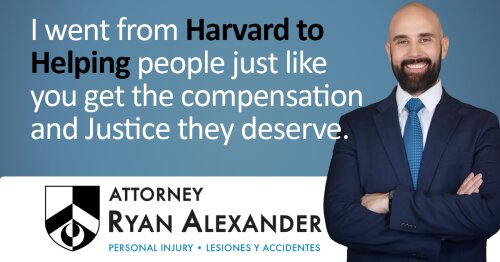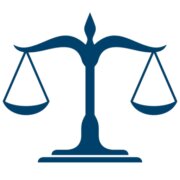Best Civil Rights Lawyers in Las Vegas
Share your needs with us, get contacted by law firms.
Free. Takes 2 min.
List of the best lawyers in Las Vegas, United States
About Civil Rights Law in Las Vegas, United States
Civil rights law protects individuals from discrimination, unequal treatment, and certain abuses of power by government actors or private parties. In Las Vegas, as elsewhere in the United States, civil rights protections come from federal statutes and constitutional guarantees, from Nevada state law, and from local ordinances. Common civil rights issues include employment discrimination, housing discrimination, police misconduct and excessive force, disability access, public accommodation disputes, voting rights, and hate crimes. Enforcement can occur through administrative agencies, local complaint processes, or civil lawsuits in state or federal court.
Why You May Need a Lawyer
You may need a lawyer when your civil rights have been violated and you want to pursue a formal remedy. Lawyers offer several advantages:
- Case assessment and strategy - an attorney can evaluate the strength of your claim, explain legal options, and recommend the best path forward.
- Meeting procedural and filing deadlines - civil rights claims often require prompt administrative filings with strict time limits. Missing a deadline can bar your claim.
- Evidence preservation and investigation - an attorney can help collect and preserve evidence, obtain police records or workplace documents, and identify witnesses.
- Negotiation and settlement - lawyers handle settlement negotiations, draft demand letters, and can often secure compensation or policy changes without a trial.
- Litigation and enforcement - if a lawsuit or administrative hearing is necessary, an experienced attorney will manage pleadings, discovery, motions, and courtroom advocacy.
Common situations that call for legal help include being fired or demoted for a protected reason, being denied housing or evicted because of a protected characteristic, experiencing police misconduct or wrongful arrest, being denied reasonable disability accommodations, or facing retaliation after reporting discrimination or harassment.
Local Laws Overview
Key legal layers affecting civil rights in Las Vegas include federal, state, and local rules. Important aspects to know:
- Federal law - statutes like Title VII of the Civil Rights Act, the Americans with Disabilities Act - ADA, the Fair Housing Act, and constitutional protections apply in Las Vegas because it is within the United States. Federal agencies such as the Equal Employment Opportunity Commission - EEOC - and the U.S. Department of Justice enforce many federal claims.
- Nevada state law - Nevada statutes and state agencies provide additional protections and procedures. Nevada law may cover employment, public accommodations, housing, and other areas with requirements and remedies that can differ from federal law.
- Local ordinances and city/county offices - Clark County and the City of Las Vegas may have human rights or civil rights offices, local anti-discrimination ordinances, and complaint processes that complement state and federal protections. Local policy changes can also affect law enforcement practices, public accommodation rules, and government training requirements.
- Administrative exhaustion and time limits - many civil rights claims require filing an administrative charge with a designated agency before suing. Time limits vary by claim and by agency, so prompt action is critical.
- Remedies - available remedies can include monetary damages, injunctive relief or policy changes, reinstatement in employment, attorney fees, and sometimes punitive damages depending on the claim and level of fault.
Frequently Asked Questions
What counts as a civil rights violation in Las Vegas?
A civil rights violation occurs when a federal, state, or local law that guarantees equal treatment or certain protections is breached. Examples include discrimination based on race, color, national origin, religion, sex, gender identity, disability, age, or familial status; police misconduct; denial of reasonable disability accommodations; and retaliation for asserting protected rights.
How do I know whether to file with a government agency or go straight to court?
Many civil rights claims require or benefit from first filing an administrative charge with an agency such as the EEOC or a state human rights commission. These agencies often investigate and may issue a right-to-sue notice. An attorney can advise which administrative steps are required and when a lawsuit is appropriate.
How long do I have to file a civil rights complaint?
Deadlines vary by the type of claim and the enforcing agency. Some administrative charges must be filed within months of the incident, while other claims may allow years to file in court. Because deadlines can be strict and differ by statute and factual context, consult an attorney or a relevant agency promptly.
Can I sue the police in Las Vegas for excessive force or wrongful arrest?
Yes, you may have a claim against police officers or the police department for excessive force, wrongful arrest, unlawful search, or other abuses. Suing government officials often involves special procedural rules, such as qualified immunity defenses and strict notice requirements, so it is important to seek legal counsel early.
What types of damages or relief can I seek?
Possible remedies include compensatory damages for lost wages and emotional harm, punitive damages in some cases of intentional misconduct, injunctive relief to stop discriminatory practices, reinstatement to a job, reasonable accommodation orders, and attorney fees. The specific relief available depends on the law you invoke and the facts of your case.
Will filing a complaint hurt my job or situation because of retaliation?
Retaliation for asserting civil rights is illegal under many federal and state laws. If you suffer adverse action after reporting discrimination or participating in an investigation, that may itself be a separate legal claim. Preserve evidence of retaliation and consult an attorney quickly.
Do civil rights laws apply to private businesses or only government entities?
Many civil rights laws apply to private businesses as well as government actors. For example, federal employment discrimination laws generally apply to employers of a certain size, and the Fair Housing Act covers private landlords. Constitutional claims typically apply when a government actor is involved.
Can undocumented immigrants bring civil rights claims?
Yes. Some civil rights protections apply regardless of immigration status. For example, victims of employment discrimination, police misconduct, or denial of medical care may have enforceable rights even if they are undocumented. Immigration status can complicate matters, so consult an attorney experienced with these intersecting issues.
How do I find a civil rights lawyer in Las Vegas?
Look for attorneys or law firms with experience in civil rights, police misconduct, employment law, or housing discrimination. Consider free consultations, client reviews, case results, and whether the lawyer handles cases on contingency or hourly bases. Legal aid organizations and local bar association referral services can also help identify lawyers who offer reduced-fee or pro bono help.
What should I do immediately after I believe my civil rights were violated?
Document the incident in writing with dates, times, and witnesses. Preserve physical evidence, emails, text messages, photos, and medical records. If police are involved, obtain incident or arrest reports and the officers' badge numbers if possible. Contact an attorney or an appropriate enforcement agency to learn about filing deadlines and next steps.
Additional Resources
Government and advocacy organizations can help with information, intake, and enforcement. Examples of useful resources to contact in Las Vegas include federal agencies that enforce civil rights, state-level civil or equal rights commissions, the state attorney general's office for guidance on state law, local human rights or civil rights offices, and nonprofit legal aid or advocacy organizations that handle discrimination, housing, and police misconduct claims.
When seeking help, ask about intake procedures, eligibility for free or reduced-fee representation, and whether the organization can assist with administrative filings or court cases.
Next Steps
If you believe your civil rights in Las Vegas were violated, follow these steps to protect your rights and preserve options:
- Document everything - write a clear timeline, collect records, preserve evidence, and get witness contact information.
- Act promptly - note potential deadlines and file administrative charges or complaints as recommended by counsel or the relevant agency.
- Contact an attorney - seek a lawyer experienced in civil rights to assess your claim, explain your options, and represent you in negotiations or litigation.
- Use available community resources - if you cannot afford a private attorney, contact local legal aid organizations, bar association referral services, or civil rights advocacy groups to explore free or low-cost help.
- Stay informed and safe - if your situation involves retaliation or risk to your safety, prioritize safety planning and notify authorities or your attorney about any threats.
Taking these steps will help preserve your rights and increase the chance of a successful outcome. Civil rights matters can be complex and time-sensitive, so early consultation with an experienced attorney is often the best next move.
Lawzana helps you find the best lawyers and law firms in Las Vegas through a curated and pre-screened list of qualified legal professionals. Our platform offers rankings and detailed profiles of attorneys and law firms, allowing you to compare based on practice areas, including Civil Rights, experience, and client feedback.
Each profile includes a description of the firm's areas of practice, client reviews, team members and partners, year of establishment, spoken languages, office locations, contact information, social media presence, and any published articles or resources. Most firms on our platform speak English and are experienced in both local and international legal matters.
Get a quote from top-rated law firms in Las Vegas, United States — quickly, securely, and without unnecessary hassle.
Disclaimer:
The information provided on this page is for general informational purposes only and does not constitute legal advice. While we strive to ensure the accuracy and relevance of the content, legal information may change over time, and interpretations of the law can vary. You should always consult with a qualified legal professional for advice specific to your situation.
We disclaim all liability for actions taken or not taken based on the content of this page. If you believe any information is incorrect or outdated, please contact us, and we will review and update it where appropriate.









